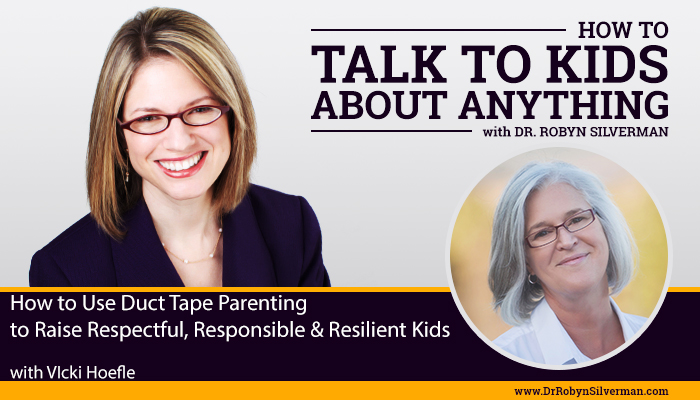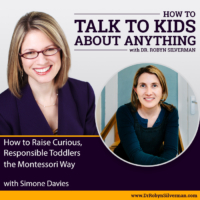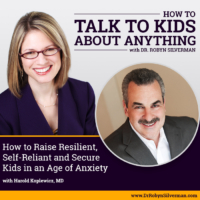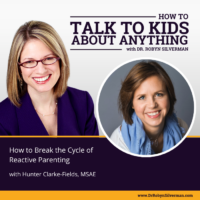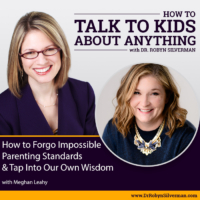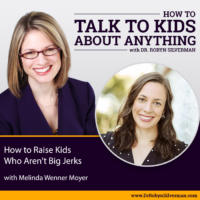Podcast: Play in new window | Download
Subscribe: Apple Podcasts | RSS | More
How to Use Duct Tape Parenting to Raise Respectful, Responsible & Resilient Kids
This podcast will focus on Duct Tape Parenting, a less-is-more approach to raising respectful, responsible and resilient kids. Duct Tape Parenting asks parents to refrain from doing many of the go-to parenting strategies that really don’t work. From nagging and reminding to saving, time-outing, consequencing, and yelling, Vicki Hoefle asks parents to stop talking, butt out and start focusing on the self skills, home skills, social skills and life skills our children need to thrive without our constant help and vigilance. When we let go and do less, our children’s brains turn on and allow them to do more. This shift can lead to a more positive, peaceful home life than everyone enjoys.
Special guest: Vicki Hoefle.
Ask an audience of parents to shout out the most annoying behaviors their children exhibit that they desperately want to get rid of—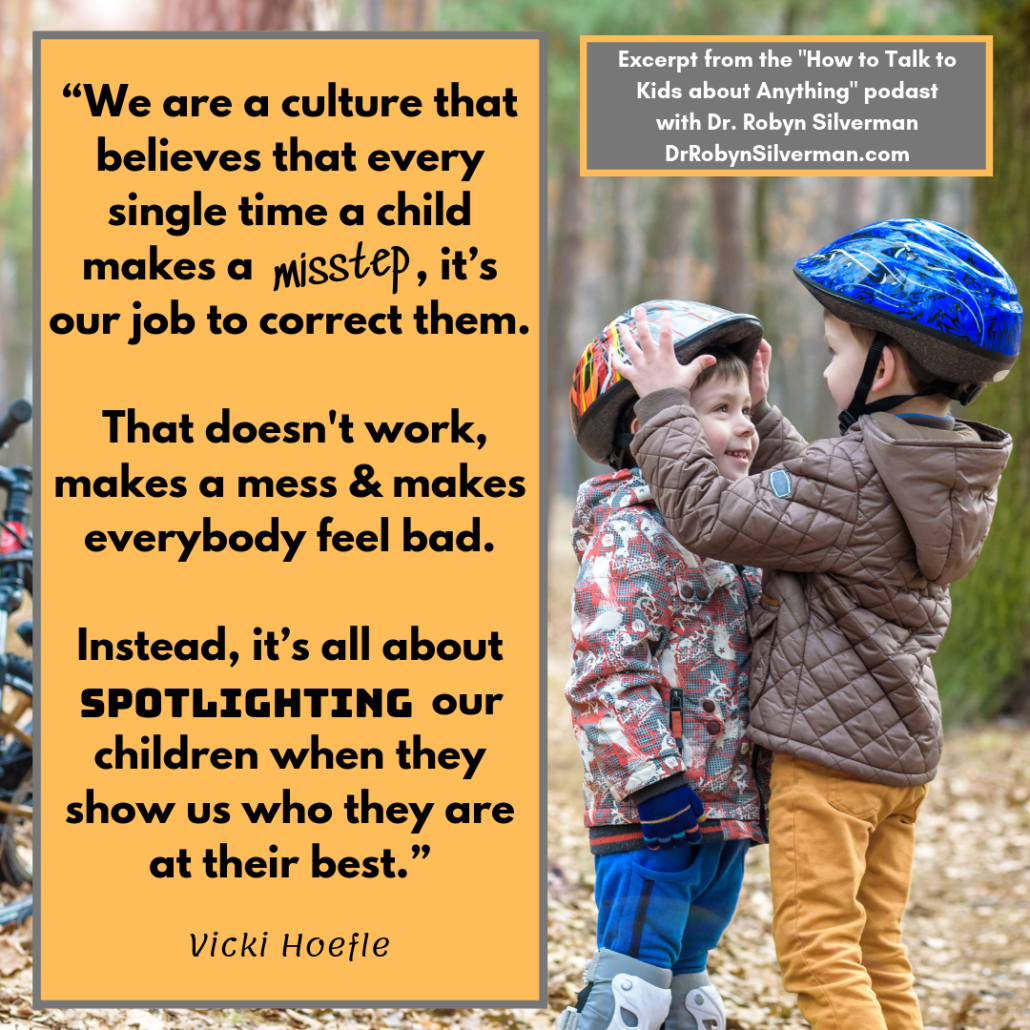 there won’t be lack of answers. From fighting and hitting to getting up from the table, getting out of bed, making a mess, whining and talking back—parents have a bunch of challenges they are trying to solve to make their family homes more peaceful, their mornings or evening routines easier and their kids more cooperative or responsible. But what if I told you that the strategies we often employ to deal with these frustrating behaviors was, well, wrong? From nagging to judging, correcting, time-outs, reminding, lecturing and saving—our strategies might just be mere bandaids –or the very things that are making the behaviors worse? And what if there were actually strategies—governed by a key parenting philosophy– that could make it better—and help our kids to become confident, competence, responsible members of society? What in the world could make this magical philosophy work so well? You might be surprised by the answer—it’s Duct tape.
there won’t be lack of answers. From fighting and hitting to getting up from the table, getting out of bed, making a mess, whining and talking back—parents have a bunch of challenges they are trying to solve to make their family homes more peaceful, their mornings or evening routines easier and their kids more cooperative or responsible. But what if I told you that the strategies we often employ to deal with these frustrating behaviors was, well, wrong? From nagging to judging, correcting, time-outs, reminding, lecturing and saving—our strategies might just be mere bandaids –or the very things that are making the behaviors worse? And what if there were actually strategies—governed by a key parenting philosophy– that could make it better—and help our kids to become confident, competence, responsible members of society? What in the world could make this magical philosophy work so well? You might be surprised by the answer—it’s Duct tape.
Vicki Hoefle is a popular parent educator, speaker and author of Duct Tape Parenting: A Less Is More Approach to Raising Respectful, Responsible, and Resilient Kids and The Straight Talk on Parenting: A No Nonsense Approach on How to Grow a Grownup. She has Helped thousands of families for over two decades by sharing her parenting tips and techniques across the country. She combines expertise in Adlerian Psychology with a suite of actionable, time-tested tools. A master story teller who is part comedian, part sage, mostly parent, Vicki offers ways to strengthen and enhance the parent-child relationship and bring out the best in each parent, the best in each child, and the best in each encounter. Vicki Hoefle leads parent education programs nationwide. Vicki’s parenting philosophy and approach to raising “thinking” children, does not include “getting children” to comply or using so-called “discipline” strategies (which include nagging, reminding, lecturing, bribing, counting, and time-outing) for dealing with pesky behaviors. Her strategies work for every family—and we couldn’t be more excited to talk about them today.
The podcast provides:
- What Duct Tape Parenting is
- The biggest challenges with implementing Duct Tape Parenting
- What we should be doing instead of nagging, lecturing, punishing, etc
- What’s keeping us in the role of “maid” and what we can do to get ourselves out of this role
- hausarbeit schreiben lassen
- How we can worry less about how our kids will be in the future and what people think of them
- Strategies to deal with common issues that get in the way of calm morning routines
- How to praise less and encourage more
- masterarbeit schreiben lassen
- The challenge we need to follow to get ourselves unstuck
- How to help kids gain the skills they need
Important Messages:
- How can we create an environment that is conducive with my children becoming their best selves?
- People think that “duct tape parenting” means doing nothing and handing over control to the kids. Not true.
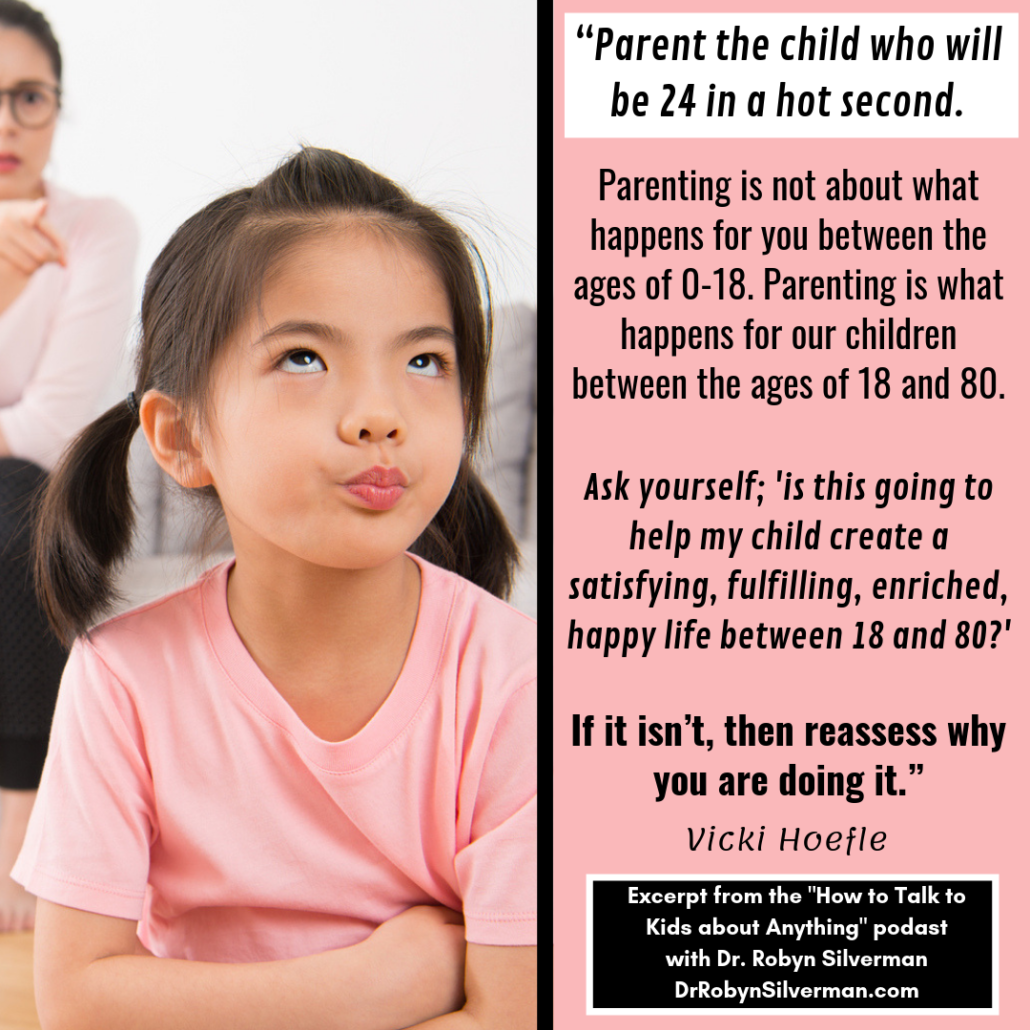
- Get rid of strategies that don’t grow with your child. Get rid of what others are doing but doesn’t work for you.
- Vicki got some duct tape to put over her own mouth so she’d stop nagging, reminding and punishing.
- Every time I talked, my kids relied on me to navigate the next situation. When you turn over control to someone else, there’s. certain amount of resentment- and his turns into power struggles. Snarky. Disrespectful attitude. It’s our children trying to say- let me do it, let me make a mistake, let me try.
- Pesky behaviors can create connection for kids—parents attend to them, so they keep doing them. We need a new suite of strategies that actually promote cooperation, compassion, responsibility, follow through, truthfulness. Lecturing, reminding and nagging are not building those attributes in our children.
- What is it that we want to build in our children? NOT what is it that we want to get rid of?
- Replace pesky behavior with useful behaviors. Enhance life. And make more peace while we are living with them.
- Our children’s pesky behaviors are the weeds—our responses are the fertilizer.
- If you don’t want the fighting, what do you want? For example, if you want cooperation, how are you teaching them that?
- Put the attention on creating the skill set that allows for them to succeed. Growth in family. Confidence in family.
- Weave skill into moments—when you used a skill. “I was getting really annoyed with your brother the other day but I decided to walk away and go outside. I don’t have the right to ask him to change because I was the one who was getting upset.” Use your own experience—what you use. Find opportunities throughout the day.
- Identify the anchor: (strategy) Find 2 kids playing together- walk up individually. I appreciate how hard it is to play with your brother sometimes but you were so cooperative while playing cards there. (Oh, that’s what cooperation looks like! I like being that kid). Concrete- demonstrate. Do this three times per day for 7 days. Making the identity around a positive attribute.
- What you say to your child becomes what they say in the mirror- I’m messy, I’m late, I’m rude. I guess that’s who I am so I better get good at it. If you switch it out and say “you are cooperative, kind, helpful” and then give instances that they show it, child looks in the mirror and says “this is who I am, and then this is who I will be more often than not.”
- The more you see in your child the things that upset you, the more you see in your child the things that upset you.
- Don’t ignore pesky behaviors- approach them in a different way. Build the attributes, assets and character traits that you know will benefit your child when you are no longer the primary teacher in their world.
- Most parents- often identify role as being helpful. But this is a hindrance. Redefine role as emotionally available. Teach them how to live a satisfying productive life. Introduce them to self skills, home skills, social skills and life skills.
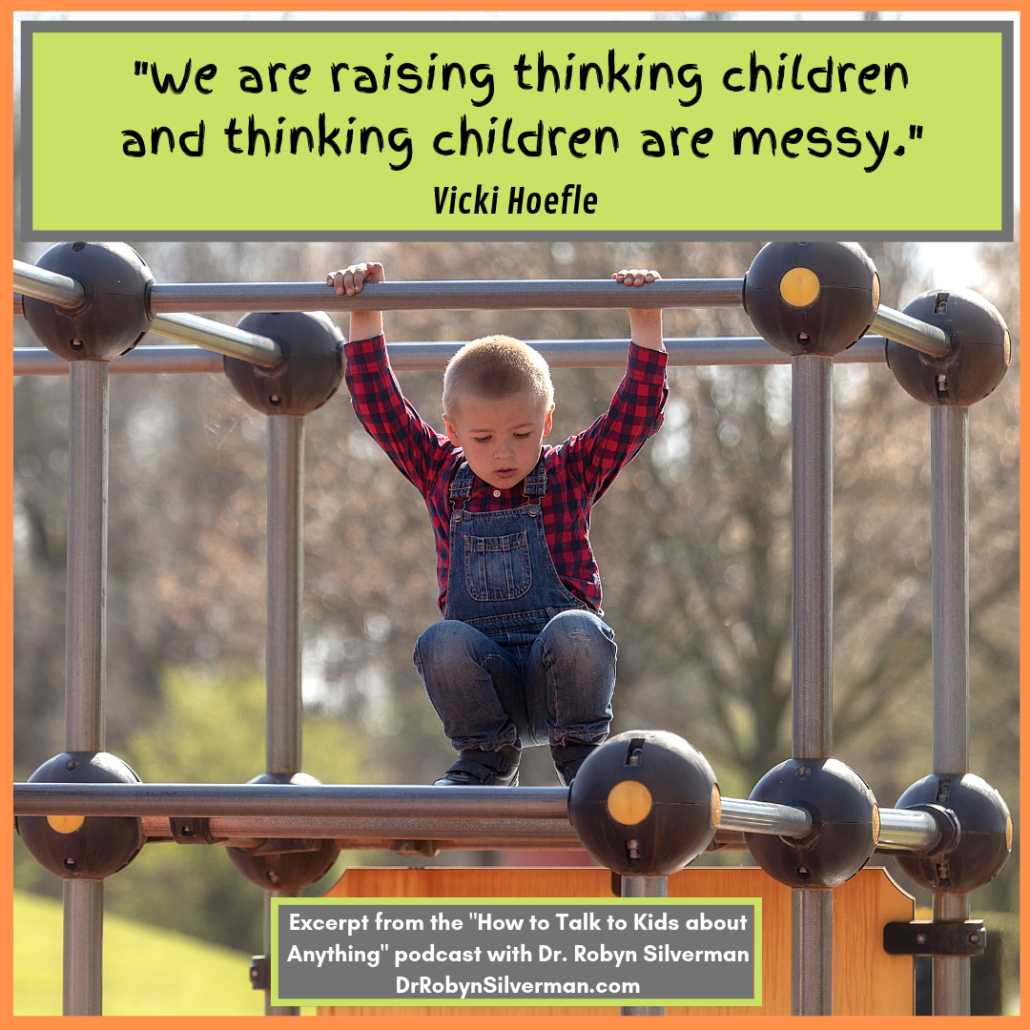 We need to start handing over more and more responsibility to our children. Then they are more likely to take ownership. They are more likely to take healthy risks. Willing to raise their hands. Sense of confidence that comes from knowing that you can manage your small world.
We need to start handing over more and more responsibility to our children. Then they are more likely to take ownership. They are more likely to take healthy risks. Willing to raise their hands. Sense of confidence that comes from knowing that you can manage your small world. - If your child doesn’t want to learn how to do something- this is not a commentary on his character. It has nothing to do with him as a human being. It’s a skill set. Back off. Let your children struggle and let them set the time schedule.
- Child is on a huge learning curve. They are not on our time line. It’s our personal prestige that so often mucks up the relationship. We are watching everyone else watch us instead of watching our children and saying “I am my child’s advocate.”
- When it comes to the relationship, these small fractures—nagging, reminding, forcing them to do something they don’t want to do, makes them second class citizens.
- Heal a relationship- first thing we need to do is we need apologize. “I think I have been sending this message that I get to boss you around. I am sorry.” Children don’t want to be in conflict with their parents. Really listen. What they want for breakfast or want to wear- instead of pushing your agenda.
- Identify your child’s rhythms. Teach your child how to navigate the morning routine. Less talking. More action. Kids aren’t going to change because of who you are.
- Ask; how do you want to organize your morning routine? Practice on the weekend.
- Third, bottom line. If you are in the car by 7:30, I’ll drive you.
- If you are in charge of their morning, then they will never learn what works for them.
- They can make any changes the next day to make it more appealing.
- When your child is inconvenienced, then they will make the change. If you make things easy for them, they won’t change. Represent what they can expect from the outside world.
- Do nothing, say nothing week. No nagging, saving, reminding, etc.
- If I step back and I allow my kids to step up, what happens? Changes way you see them.
- Focus on support and training.
- Assess. Then sit them down and say ‘this is what I do/say.’ I messed up. I’m going to do some changing. Modeling. How would it be if I just allowed you to get ready by yourself in the morning? Try for a few days? Gather info.
- You are the leader of your pack- act like a leader.
- Is this going to serve my child when they are 24? Let’s use that as our true north. Parenting will be simpler and far more effective.
Notable Quotables:
- “Parenting is challenging on a good day.”
- “Duct tape parenting is doing less of what doesn’t work and doing more of what does so you get more positive change in your family.”
- Trust yourself as a parent and know that you are the expert in your child’s life. But in order to become that expert, we have to
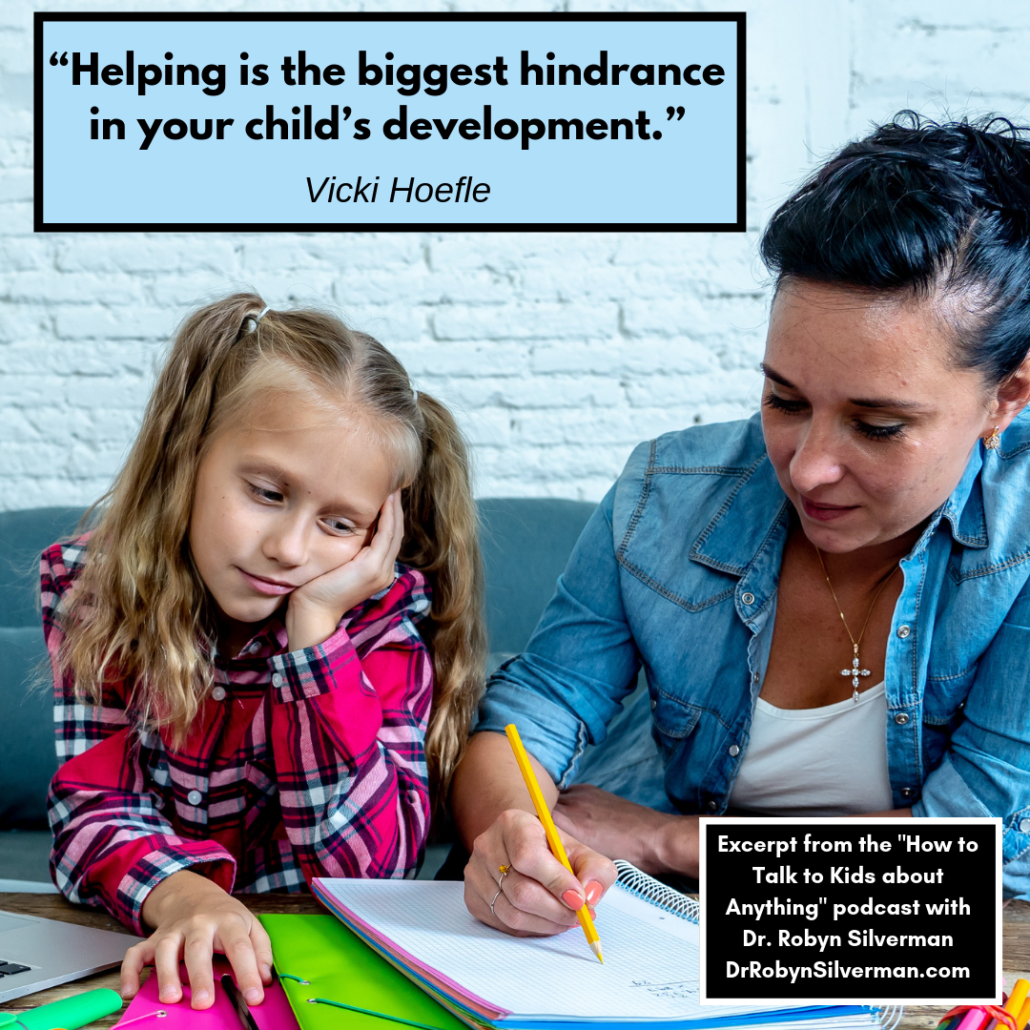 learn to listen to our children differently. They are always trying to inform us, either through their behavior or the words that they use.”
learn to listen to our children differently. They are always trying to inform us, either through their behavior or the words that they use.” - “Duct tape parenting is magic. When we stop talking, our children’s brains turn on. They can look around their world and access what is going on.”
- “I realized that every time I talked, my children’s brains shut down and they relied on me to navigate the next situation. This might sound like a lovely thing. But when you turn over control of your life to someone else, no matter what age, there’s a certain amount of resentment that comes along with that, In young children, that resentment turns into power struggles.”
- We remind, we bribe, we yell, we coax, we threaten, we give in, we save, we consequence. Intellectually, I think we know, as parents, that this list of strategies is not getting us the results we want—but we don’t know what else to do.
- “When your child is exhibiting these pesky behaviors, they get more anchored. It’s where the connection is. We make eye contact, our voices intense, we put our phones down, we move towards them. In the child’s world, the most important thing is connection with his parents. So if you are convinced as a child that if you poke your little brother and he screams, your mother will drop what she’s doing and attend to you, that is a great solution for connecting to Mom. We have to reframe our children’s behavior and our responses to them.
- “We need a new suite of strategies that actually promote cooperation, compassion, responsibility, follow through, truthfulness. Lecturing, reminding and nagging are not building those attributes in our children.”
- If the solution to fighting between my children is cooperation, I have to focus more on how I help my children to cooperate with someone who sees the world differently. How do I teach them about conflict resolution? But that’s not where the emphasis is. It’s on ‘stop the fighting, stop picking, who’s to blame, who’s in trouble, who’s the victim, who’s the bully?’ All you are doing is creating an environment when you get more of what it is you focus on. Instead of paying attention to it, ask yourself, how many minutes a day am I introducing a skillset that makes it possible for my kids to tolerate a sibling who has, for example, high energy, by a child who likes to spend time quietly reading. And that’s where we see the change.”
- “We are a culture that believes that every single time a child makes a misstep, it’s or job to correct them. I don’t think that works—I think that makes a mess and makes everybody feel bad. Instead, it’s all about spotlighting our children when they show us who they are at their best.”
- “The more you see in your child the things that upset you, the more you see in your child the things that upset you.”
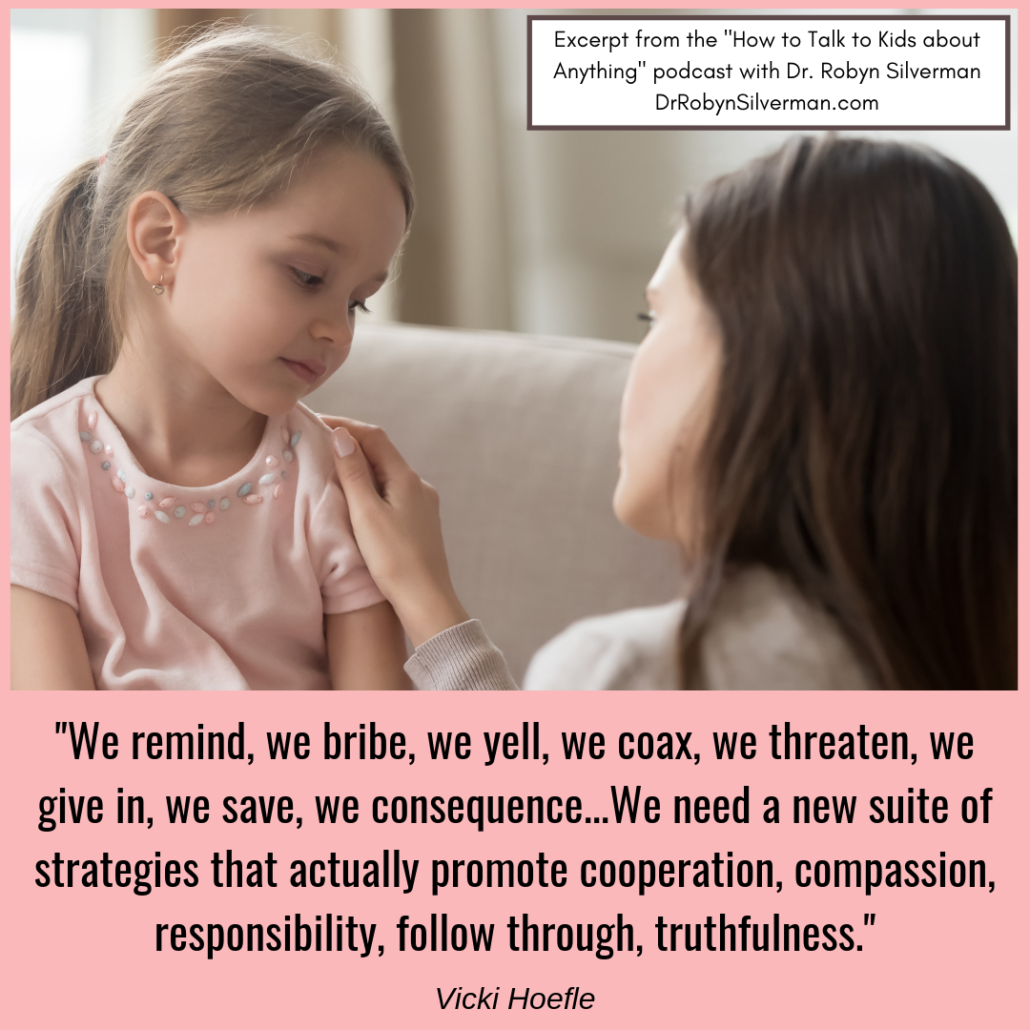
- “Helping is the biggest hindrance in your child’s development.”
- “We need to reframe what it means to be a an active, engaged parent. We can make the sandwiches and pack the backpack and wake the kids up and clean up after our children. But that’s not who I want to be and that’s not benefitting my children. We want to be emotionally available to them. We want to want to teach them how to live a satisfying, fulfilling productive life from 18-80. The only way we can ensure that they can manage their lives on their own is to introduce them to self skills, home skills, social skills and life skills.”
- “I think in our tendency to get it perfect, get it quick, do it my way, we have completely excluded children from their own development and their own world. Step out of the way and allow our children to view the world that we want them to navigate and introduce them to skills sets in small bite sized pieces so they feel successful and they’re willing to learn the next thing.”
- “We have an idea of when we think kids should be doing things and so we push them before they are ready. Then it becomes a power struggle. We have to listen to the ‘no.’ If they’re potty-trained, they’re not sucking their thumbs and they can tie their shoes by the time they get into Harvard, you have one your job.”
- “When parents decide to back off and let the kids to give it a shot, allow them to struggle and let them set the time frame. If a child says “butt out,” I believe them the first time because if I told someone to back off and they didn’t, I would find a way to get rid of that person in my life.”
- “I am raising thinking children and thinking children are very messy.”
- “I’m my child’s advocate. I am my child’s support. I am my child’s champion. I don’t care what anybody else says. I know my child better than anyone else. It is my responsibility as the parent to ensure that I adjust my ways of teaching to match their ways of learning.”
- “When it comes to the relationship, these small fractures happen each time we nag, remind, override, we are speaking to them like they are second class citizens.”
- “You are the leader of your pack so act like a leader. Know what your bottom line is, know where your boundaries are, and be clear about them. Follow through with them so you build trust in your children so that when they are teenagers, they believe what you say.”
- “Parent the child who will be 24 in a hot second. Parenting is not about what happens for you between the ages of 0-18. Parenting is what happens for our children between the ages of 18 and 80. Ask yourself, every single day, ‘is this going to help my child create a satisfying, fulfilling, enriched, happy life between 18 and 80?’ If it isn’t, then reassess why you are doing it.”

